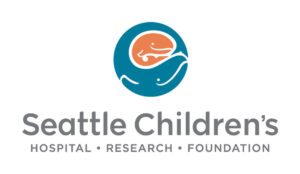Adolescents and young adults facing serious illness such as cancer are at higher risk of depression and post-traumatic stress. Yet our health care system devotes few resources to addressing the psychosocial needs of those in this age group. To help fill this gap, a team at Seattle Children’s Hospital is developing digital interventions to boost resilience and stress management.
Most health care workers in the field of palliative medicine focus on aging populations facing illness at the end of life. However younger patients facing serious illness often face significant developmental challenges when confronting serious illness.

Dr. Abby Rosenberg
“We believe these inferior outcomes for those who’ve had cancer as teens or young adults are because their disease hits at a key developmental time. Executive function – setting goals, making decisions, deferring gratification, controlling impulses – is not fully developed,” explains palliative care researcher Dr. Abby Rosenberg. “Also, part of how people learn to be resilient is by overcoming adversities. Teens haven’t had the chance to develop these skills in ways that help them navigate something as big as cancer.”
To help these patients, Rosenberg and her colleague Dr. Joyce Yi-Frazier developed a resource known as PRISM (Promoting Resilience in Stress Management). When first launched, PRISM was taught in person at the bedside. The program promotes four skills: stress management, goal-setting, positive reframing and meaning-making. Sessions with patients are held every other week, and each session is taught by a trained practitioner.
The PRISM program has been rigorously tested through NIH-funded randomized controlled trials. In one trial, results from 92 subjects showed that those who received the PRISM intervention reported increased hopeful patterns of thought, higher resilience, higher quality of life, and lower distress at the end of a six-month period. Those in the PRISM group were 90% less likely to meet criteria for depression after completing the intervention than those in the control group.
 Even before the COVID-19 pandemic, Rosenberg and Yi-Frazier realized that the program could help many more patients if the sessions could be administered remotely. As a result, with funding from AVDF, they are developing and testing an app-based intervention utilizing the PRISM protocol. The tests will examine the relative effectiveness of in-person versus digital interventions. Even if the app-based intervention proves to be less effective, this approach could still be used as an early stage intervention until in-person sessions can begin.
Even before the COVID-19 pandemic, Rosenberg and Yi-Frazier realized that the program could help many more patients if the sessions could be administered remotely. As a result, with funding from AVDF, they are developing and testing an app-based intervention utilizing the PRISM protocol. The tests will examine the relative effectiveness of in-person versus digital interventions. Even if the app-based intervention proves to be less effective, this approach could still be used as an early stage intervention until in-person sessions can begin.
“We are developing standardized and systematic ways to promote patient and family resilience in the setting of serious illness,” Dr. Rosenberg says. “Health is determined not only by biomedical processes, but also by emotions, behaviors and social relationships. If patients and families need certain resilience skills to thrive – and have better health outcomes because of those skills – we want to make sure they get that training. Our goal is to help them learn how to change their appraisal of difficult situations in real time and have greater quality of life in the future.”
